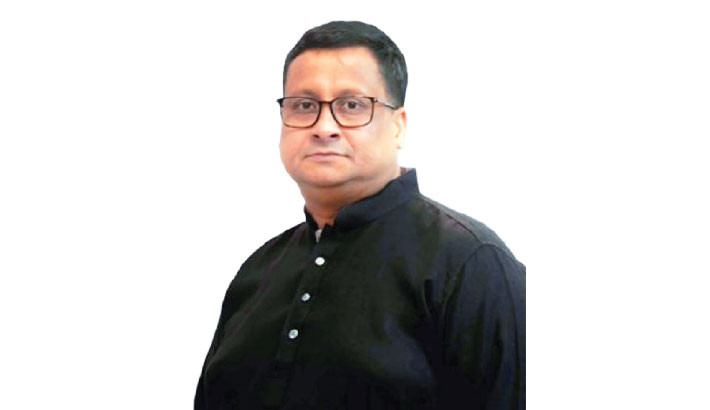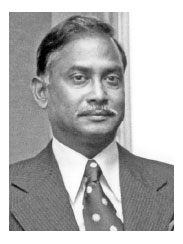
Following the July uprising, Bangladesh is now going through the highest political instability. The fascist and their allies have yet to stop hatching conspiracies against the country. In this situation, the state leader whose relevance the nation feels the most is Shaheed President Ziaur Rahman, who at the beginning of his reign said, “The purpose of the nation of Bangladesh is to unite and establish progress and peace.”
 Our progress and peace depend on our national unity, which depends on the universality, firmness and timeliness of the leadership. On 27 March 1971, at the turning point of the nation, the legendary statesman proved this by saying, “We Revolt”. The declaration of great independence in 1971, his rise to the centre of power in the changed political context of the 1970s, and his exceptional, courageous and timely steps in freeing Bangladesh from the clutches of the oppressors and transforming it into a modern state in a very short time will be written in golden letters in the history of the world for a long time.
Our progress and peace depend on our national unity, which depends on the universality, firmness and timeliness of the leadership. On 27 March 1971, at the turning point of the nation, the legendary statesman proved this by saying, “We Revolt”. The declaration of great independence in 1971, his rise to the centre of power in the changed political context of the 1970s, and his exceptional, courageous and timely steps in freeing Bangladesh from the clutches of the oppressors and transforming it into a modern state in a very short time will be written in golden letters in the history of the world for a long time.
Zia’s honesty, patriotism, concentration on achieving the welfare of the country and steadfastness of character were an enviable matter. These qualities took him to the peak of popularity in a very short time. But anti-Bangladesh forces could not accept Zia’s skyrocketing popularity. Therefore, he was assassinated on 30 May 1981 by some deviant soldiers at the Circuit House in Chittagong in the conspiracy of the hegemonic forces. He was only 46 years old then.
The sacrifices that Zia made for the people in his short but varied life and the way he relentlessly ran from one end of the country to the other for the welfare of the people show his compassion for the nation. Zia will remain an eternal flame among the people of this country through historical events such as the establishment of multi-party democracy, the introduction of the philosophy of Bangladeshi nationalism, and the writing of the 19-point manifesto to build a modern and productive Bangladesh. To that end, Ziaur Rahman emphasised a village-orientated economy. Zia said, “Bangladesh means villages. For the development of the economy of Bangladesh, we have to develop the villages and rural economy.” Stressing the importance of the overall improvement of rural life, he said, “We have to take the message of civilisation to the doorsteps of the illiterate and poor people of the villages. Only then can we say that we have worked for the development of Bangladesh.” The canal-digging programme was a groundbreaking step, taken by Zia in 1976 with the aim of increasing agricultural production and making the country self-reliant in food production. During that time, 14,000 canals were dug across the country to overcome the shortage of irrigation water required to accelerate the country’s agricultural development.
Under Ziaur Rahman’s patronage, more success came in the education sector in a short time. In 1978, he formed a national education advisory committee under the leadership of Professor Mustafa Bin Qasim to formulate a timely interim education policy. With the aim of introducing a production-orientated education system, Shaheed Zia organised a 'National Education Workshop' in Dhaka on 14 September 1978. With the emphasis on libraries for the expansion of education, a development project titled 'Establishment of Thana Public Library cum Auditorium' was taken up in the fiscal year 1980-81.
In Article 21 of the founding declaration of the Bangladesh Nationalist Party (BNP), the commitment to launch a mass-orientated and life-orientated education programme in Bangladesh was expressed. The introduction of mass education programmes and universal primary education is an unprecedented addition to the education system of Bangladesh. In 1978, the Madrasa Education Board was established. With the aim of spreading Islamic religious and modern education in an integrated manner in accordance with the needs of the era and national traditions and requirements, Ziaur Rahman announced the establishment of an Islamic University in the country in 1976. On November 22, 1979, he laid the foundation stone of the Islamic University in Kushtia.
He was the main patron of healthy culture. In 1976, he introduced the ‘Ekushey Padak’ award in honour of the language martyrs. In 1977, he introduced the ‘Swadhinata Padak’, the highest state award of Bangladesh. He also presented the ‘National Film Award 1977’ for the first time on 9 January 1979. Due to Zia’s interest, the ‘Dhaka International Film Festival’ was held in March-April 1981. During his tenure, the ‘Bangla Academy Ordinance 1978’ was issued for the development of the Bangla Academy.
In 1976, he established the Bangladesh Shishu Academy for the healthy development of children. In 1979, the National Children’s Park was established in Shahbagh for the purpose of children’s entertainment. In addition, to accelerate the cultural development of children, a ‘Notun Kuri’ competition was organised on BTV in 1976. President Zia established the ‘Tribal Cultural Institute’ in Rangamati and the ‘Tribal Cultural Academy’ in Birishiri, Durgapur, Netrokona to preserve and promote tribal culture. He also established Islamic Cultural Centres in four divisional cities.
After Sheikh Mujib’s Baksal abolished the freedom of the press, Ziaur Rahman returned press freedom. He established the Bangladesh Press Institute (PIB) to provide higher training to journalists and the ‘Bangladesh Press Council’ to implement the law made for independent journalism. The National Press Club is also his creation.
The contribution of martyred President Ziaur Rahman to health services is outstanding. President Zia laid the foundation stone of the 50-bed Cancer Institute and Hospital, Shaheed Suhrawardy Hospital, National Orthopaedic Hospital and Rehabilitation Centre, C-Block of PG Hospital, National Institute of Ophthalmology and the National Institute of Physicians BMA Building. In 1978, he established the Cholera (ICDDRB) Hospital. With the aim of producing skilled nurses, he established a nursing college in Mahakhali on 5 January 1981 and a national heart institute and hospital on 3 April. The Public Health Nutrition Institute, NIPSOM and EPI were established under his patronage.
One of the most important tasks as a new state was to establish a distinct identity for Bangladesh in the international arena. The core of President Ziaur Rahman’s foreign policy was to preserve national interests and uphold sovereign dignity by formulating and implementing independent and neutral policies. As a result of his self-respecting leadership, he became a trusted leader of the Third World in the outside world. He played a strong diplomatic role in resolving the Iran-Iraq war. He was the dreamer of the South Asian Association for Regional Cooperation (SAARC). He was keen to establish relations with neighbouring India on the basis of sovereign status instead of a subservient alliance through the Farakka Agreement on the sharing of Ganga water, the preparation of the outline for the transfer of the three bigha corridor, and joint survey and discussion to determine the ownership of the South Talpatti Island. During his time, Bangladesh’s friendly and trusting relations with Muslim countries were established.
Not only Bangladesh, but also Shaheed President Ziaur Rahman was an emerging leader in the developing world. His visionary leadership emerged from the barracks of the army and took root among the masses, although the hegemonic power stopped his progress after only three and a half years. After his martyrdom in Chittagong, the then US Ambassador to Bangladesh, William B. Milam, said, “It is difficult to imagine what would have happened to Bangladesh if Zia had been killed in 1975 instead of 1981. Bangladesh could have easily become a failed state like Afghanistan or Liberia. Zia saved Bangladesh from that fate.” Shaheed Zia’s Bangladesh was a progressive Bangladesh. After independence, he was the one who was able to put the country on a solid foundation in all aspects.
_______________________________________________________________
The writer is a Professor of Marketing Department and Convener of Saada Dal, Dhaka University

